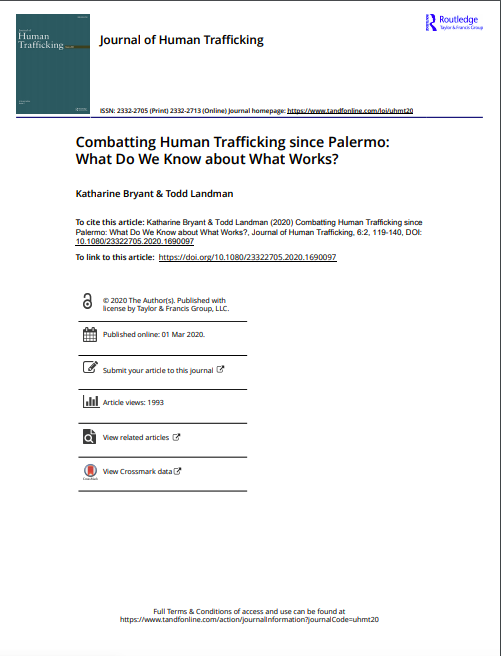In 2016, there were an estimated 40.3 million victims of modern slavery in the world, more than were enslaved during the Transatlantic Slave Trade.
Since the adoption of the 2000 UN Trafficking Protocol, numerous efforts from inter-governmental agencies, governmental agencies, international non-governmental organizations (INGOs), and domestic non-governmental organizations (NGOs) have strived to combat the phenomena of human trafficking through legal-institutional means, direct interventions, and programs of support for those exploited.
This anti-trafficking work has paid varying degrees of attention to the principles and methods of monitoring, evaluation, and impact assessment, but has often been subject to the end of project evaluations. Similar to findings of reviews of evaluations in the international development sector, evaluations of anti-trafficking programming have primarily focused on assessing the progress of project implementation and the achievement of outputs, rather than tracking the achievement of outcomes or impact.
This is further complicated by the hidden nature of human trafficking and the trauma experienced by human trafficking victims. As a consequence, despite some evidence of raised awareness and increased levels of funding, organizations are still struggling to demonstrate impact and discern what works to combat human trafficking.
This article analyses the evaluations of counter-trafficking programming produced since the Protocol to draw conclusions regarding the lessons learned from these interventions and the methods used to monitor and evaluate human-trafficking programs. By highlighting gaps, this article provides a series of suggestions on how to better track progress and impact toward the elimination of modern slavery.

